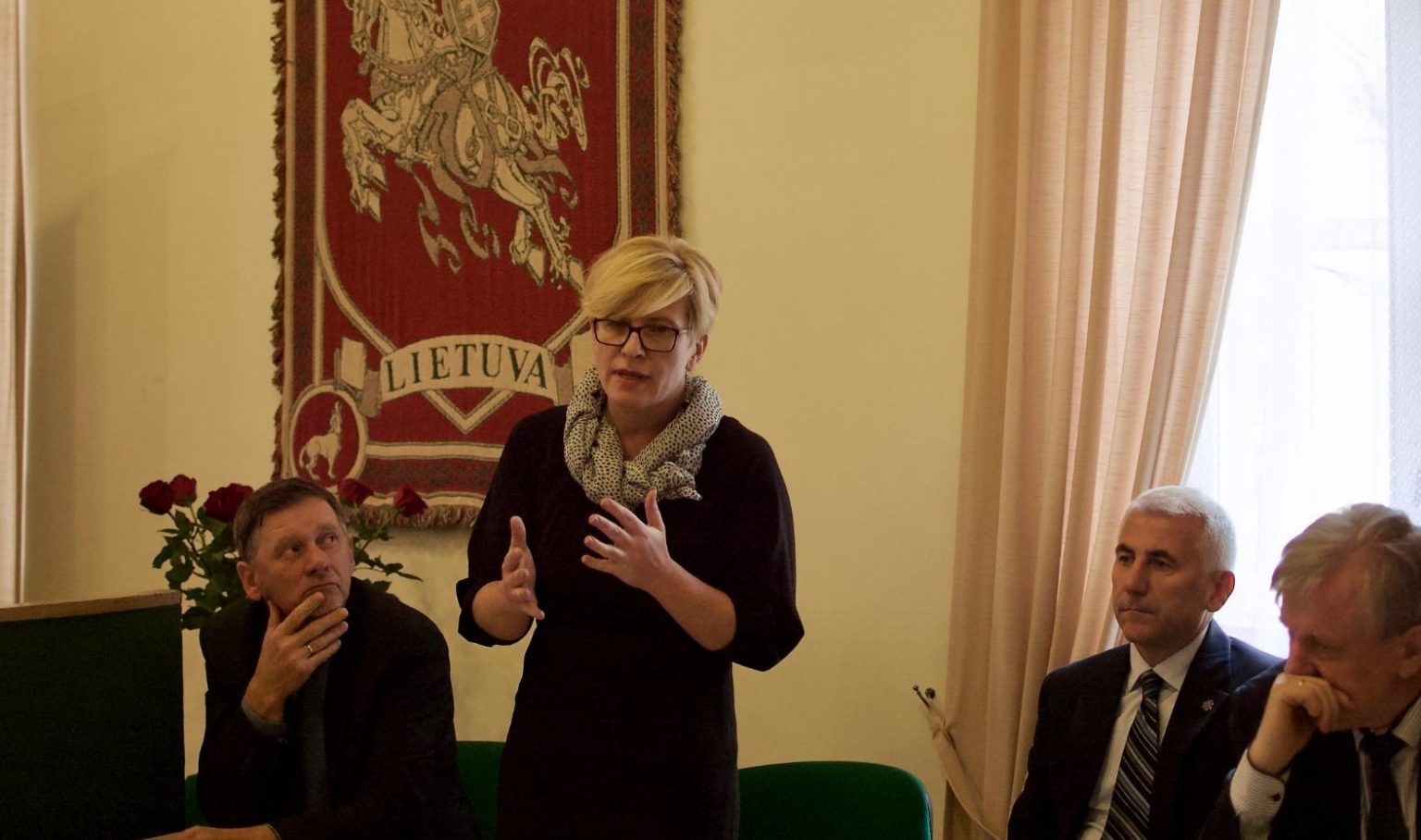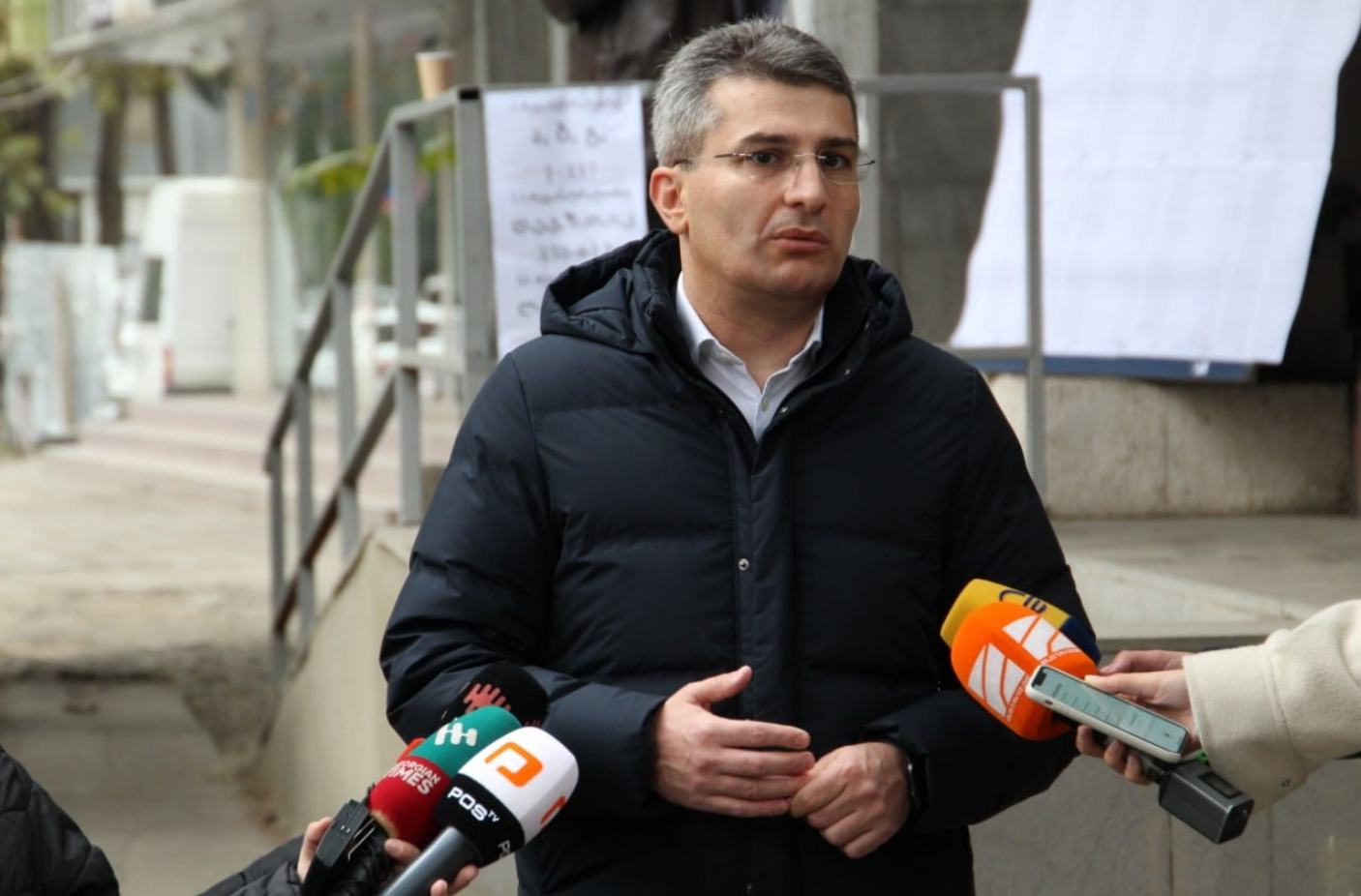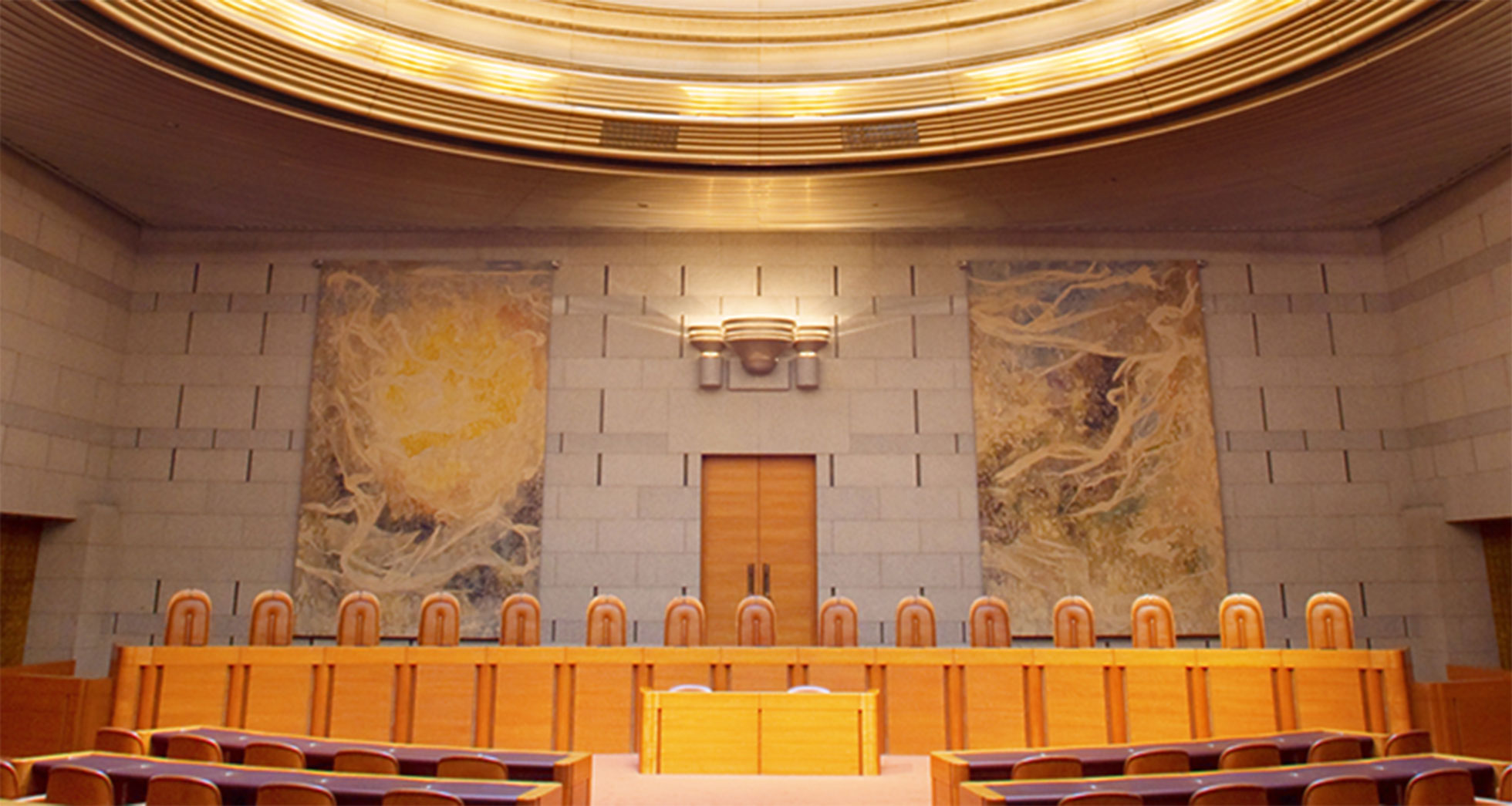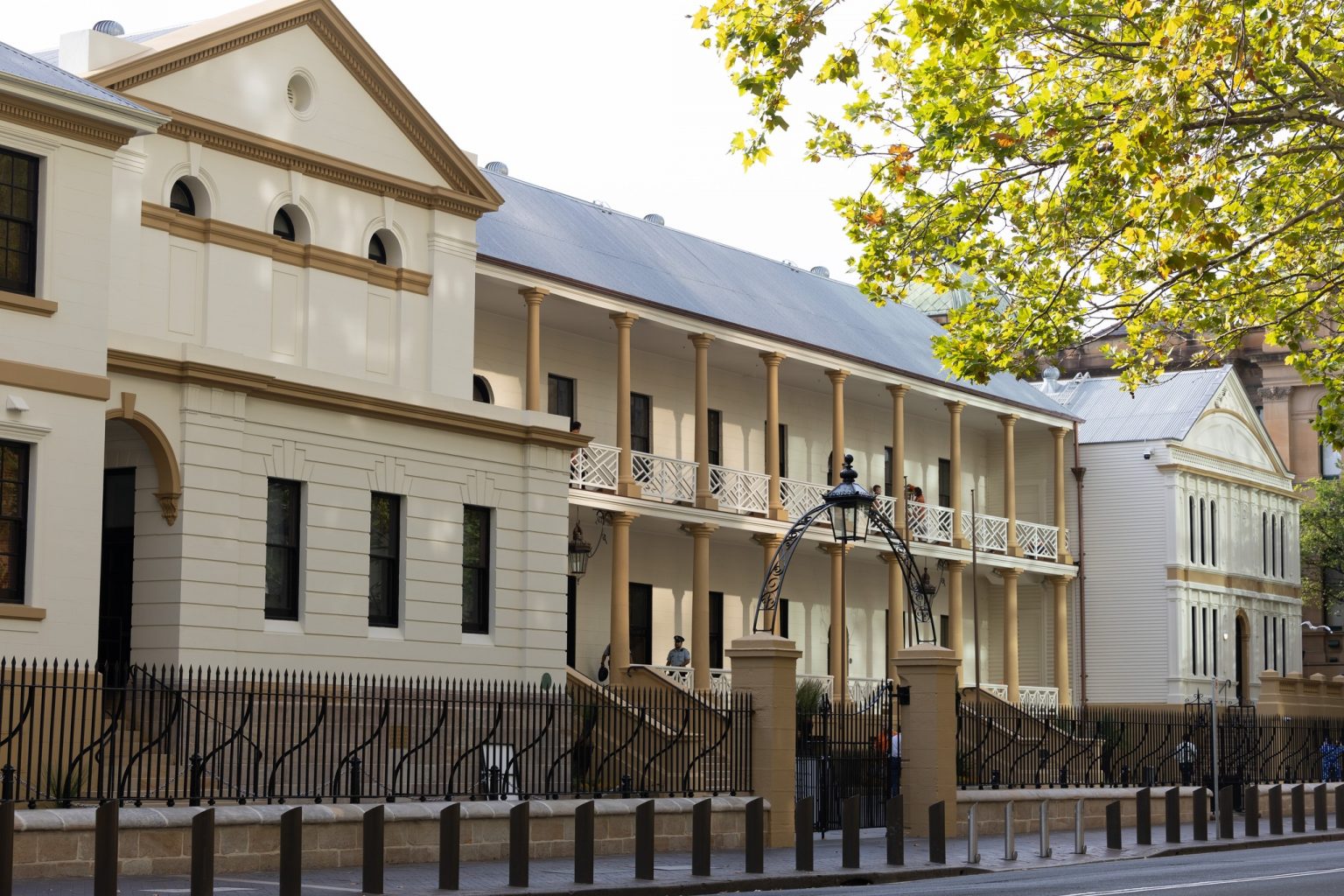World
Out in the World: LGBTQ news from Europe and Asia
Lesbian Serbian Prime Minister Ana Brnabić has stepped down

LITHUANIA

A group of same-sex couples is taking the Lithuanian government to the European Court of Human Rights, seeking access to civil unions, marriage and parental rights.
The couples involved in the suit are seeking registration of civil partnerships and recognition of same-sex marriages contracted in foreign countries. In a separate case, a same-sex couple is seeking equal parenting rights for their child. The petitioners will also be asking the Lithuanian Constitutional Court to clarify the definition of marriage in the constitution.
Lithuania does not recognize any form of same-sex relationship. A bill to legalize civil unions was proposed by the governing coalition and is one vote from passing through Parliament, but has been put on hold amid fears that it doesn’t have enough support to pass.
“The year-long litigation marathon clearly shows the reasons why trust in courts is so low in Lithuania. International law does not work in Lithuania,” Martynas Norbutas, one of the petitioners, said at a press conference.
The European Court of Human Rights is a supranational court for all members of the Council of Europe, which tries cases involving the European Convention on Human Rights. While the court has found that the convention does not require states to allow same-sex marriage, it has in the past found that same-sex couples must be grants some alternative status that is equivalent to marriage. However, it is up to individual states to implement the court’s rulings, as it has no enforcement mechanism.
Of the Council of Europe’s 46 members, 21 allow same-sex marriage, 10 allow same-sex civil unions and 15 currently have no recognition of same-sex unions.
In February, Prime Minister Ingrida Šimonytė said she was disappointed that members of her coalition had gone back on their word by failing to support the civil union law.
“I know very well that I cannot convince some of my colleagues despite the fact that the absolute majority of our factions vote for that law,” Šimonytė said on the local news program Laisvės TV.
It isn’t the first time Lithuania’s unruly coalition has failed to pass an LGBTQ rights law. Last year, the government tried to repeal an old “LGBT propaganda” law that the European Court ruled violated the convention’s right to freedom of expression, but the bill was voted down in parliament. A separate bill that would have seen Lithuania join the Council of Europe’s Istanbul Convention on Domestic Violence was also voted down after anti-LGBTQ activists began a campaign linking the convention to “gender ideology.”
Parties on both sides of the issue are attempting to shore up support ahead of parliamentary elections expected in October.
In neighboring Poland, the newly elected government says it is still planning to introduce same-sex civil unions, although it will miss its self-imposed deadline of doing so within its first 100 days. Equalities Minister Katarzyna Kotula told OKO.press that the government is still working with its coalition partners to come to agreement on what civil unions will entail, with the government preferring that same-sex couples get all the rights that come with marriage, including adoption and parenting rights.
GEORGIA

The government of the former Soviet republic of Georgia has announced plans to introduce a series of laws and constitutional amendments to limit so-called “LGBT propaganda,” ban gender change and ban adoption by LGBTQ people.
Georgia’s Parliament amended the constitution in 2017 to ban same-sex marriage. This proposal would add a new special constitutional law for the protection of family values and minors.
Under the new constitutional law, the state would be forbidden from recognizing any relationship other than heterosexual relationships, restrict adoption to married heterosexual couples and heterosexual individuals, ban any medical treatment to change a person’s gender and require that the government only recognize gender based on a person’s genetic information and ban any expression or organization promoting same-sex relationships or gender change.
Mamuka Mdinaradze, the executive secretary of the governing Georgian Dream party, says the goal of the constitutional amendments is to “protect society from pseudo-liberal ideology and its inevitable harmful consequences.”
Mdinaradze says the reforms will allow the government to block attempts by courts or international bodies to force the government to recognize same-sex marriage or civil unions.
While the Georgian government has been pursuing an alignment with the West and membership in the European Union, its government has recently taken many regressive steps on human rights and rule of law.
Last year, it introduced a “foreign agents” law that would have cracked down on media and non-governmental organizations that are critical of the government. The government backed down after massive protests.
But the conservative Georgian society appears unlikely to mobilize in massive numbers to oppose this bill, even if it does attack basic human rights.
However, as the proposed reforms would conflict with the European Union’s standards for free expression and human rights, the proposal may force Georgians to decide between repressing LGBTQ rights and its goal of EU membership.
“As an EU candidate country, Georgia is expected to align its laws with EU legislation,” the EU delegation in Georgia told German newspaper DW. “The candidate country must have achieved stability of institutions guaranteeing respect for human rights and respect for and protection of minorities.”
The Georgian Dream party seems to have introduced the bill to shore up support ahead of elections scheduled for October.
SERBIA

Serbian Prime Minister Ana Brnabić has stepped down after seven years in power, in a reshuffle of President Alexander Vučić’s government. Brnabić will take on the role of speaker of Parliament, while Vučić has named his ally Miloš Vučević as her successor.
Brnabić became the first woman and the first lesbian to hold the office of prime minister of Serbia, or to be a leader of any Eastern European country, in 2017. She is also the longest-serving person to have held the office.
She is still the most prominent LGBTQ person in the conservative, Eastern Orthodox country.
During her time in office, her status as a lesbian drew very little notice or criticism from Serbian society. She was the first leader of a Balkan country to attend a Pride march when she attended Belgrade Pride in 2017. She was frequently seen with her partner Milica Đurđić, who gave birth to their son in 2019.
However, despite her prominent title, it has been said that Brnabić wielded little actual power in the Serbian government, which is dominated by Vučić.
Brnabić has said that she didn’t want to be seen as the “gay prime minister” and that she prioritized policy goals other than LGBTQ rights in office. In turn, Serbia made little progress on expanding LGBTQ rights during her term.
The government introduced a civil unions bill in 2020 but shelved it months later amid backlash from legislators and a veto threat by Vučić. Beyond that, Brnabić’s government introduced a ban on discrimination against intersex people and removed regulations that barred LGBTQ people from accessing IVF or donating sperm.
During her time in office, Freedom House downgraded its classification of Serbia from “Free” to “Partly Free” due to Vučić’s increasingly authoritarian use of power and crackdowns on local media.
The government shuffle comes after December elections that were widely disputed as being rigged to favor the government. Last year, Serbia was rocked by months of nationwide protests against the government in the wake of rising gun violence, which a new opposition bloc had hoped would lead to gains in Parliament. Instead, the government won a majority.
JAPAN

The legal battle to achieve same-sex marriage in Japan reached a new milestone, as the couples involved in a court case in Sapporo announced plans to appeal their loss to the Supreme Court, and in a separate case, the Supreme Court ruled that same-sex couples must get access to a crime victims benefit on an equal basis with married couples.
Same-sex couples have been waging a multi-front fight for same-sex marriage through the courts in Japan, given the national government’s long-standing opposition to addressing LGBTQ rights.
In March, the Sapporo High Court delivered the first appellate-level ruling on same-sex marriage, finding that the government’s refusal to allow same-sex marriage created a “state of unconstitutionality” because it discriminated against same-sex couples, but it otherwise ordered no compensation or remedy for the affected couples.
The couples have now announced they plan to appeal the decision to the Supreme Court.
One of the plaintiffs, Eri Nakaya, said at a press conference that the legal fight was essential for queer Japanese couples.
“If we back out now, legal recognition will not be achieved in the foreseeable future. I hope the Supreme Court will also declare (the same-sex marriage ban) unconstitutional,” he said.
Before the Supreme Court weighs in, more appellate court decisions are likely. District courts in Nagoya, Fukuoka and two courts in Tokyo have ruled similarly to the Sapporo court, while a district court in Osaka has upheld the ban on same-sex marriage.
But the Supreme Court may have tipped its hand in a ruling last week, which found that same-sex couples must be granted access to a benefit provided to victims of crime on the same basis as married heterosexual couples. The court came to that conclusion by reasoning that the purpose of the benefit — to help people recover after a crime — does not change depending on the gender of the victim or their partner.
While the ruling is limited to this one specific benefit, it appears likely that the same reasoning that led the court to this conclusion ought to be applicable to the constellation of benefits that are associated with marriage. Commentators have said that the same logic should apply to pensions, health insurance and family leave.
In the background of these decisions, local governments have increasingly come to recognize same-sex couples and families through legally non-binding “partnership certificates,” which are available or soon to be available in 29 of Japan’s 47 prefectures, as well as more than 400 municipalities.
Companies are also increasingly offering benefits to employees’ same-sex partners, including most recently Disney, which announced that it would provide benefits to same-sex partners of employees at Tokyo Disneyland last week.
NEW ZEALAND

In what Auckland police are treating as a hate crime, video captured three people painting over the New Zealand city’s Pride crosswalk with white paint, the latest in a brewing war over the LGBTQ Pride symbols being waged by Christian extremists in the South Pacific country.
A video of the vandals was posted to the TikTok account @aucklandcitynight00.
Auckland police say that the rainbow crosswalk on Karangahape Road in the heart of the city’s gay nightlife district was vandalized around 4 a.m. local time on March 27. Video shows three people in hooded sweatshirts and balaclavas stopping traffic to pour white paint on the road and cover the crosswalk with long paint rollers.
The vandals left the scene in a van that had its registration plates removed but police say they were able to trace the distinctively painted van’s owner and executed a search warrant on a property linked to the owner. No arrests have yet been made.
Much of the white paint had washed away due to rain and traffic, but the crosswalk still showed damage late in the day.
It was the second Pride crosswalk to be vandalized last week after a crosswalk in Gisborne, about 300 miles southwest of Auckland, was vandalized Monday morning.
The rainbow crosswalk on Gisborne’s main street had been painted over by anti-LGBTQ protesters who were upset that the local library was hosting a drag queen story hour. The next day, protesters and counter-protesters turned up at the library’s storytelling event. Then on Wednesday night, three people once again tried to paint over Gisborne’s restored rainbow crosswalk and were arrested by police who were lying in wait.
Three people have been accused of vandalism — two men aged 46 and 36, and a woman aged 45. A fourth suspect fled the scene, and police are still searching for him.
The Gisborne protesters were affiliated with the extremist Divinity Church, a Christian cult led by Brian Tamaki with around 1,700 members, according to the latest New Zealand Census. Tamaki preaches a far-right political ideology alongside anti-LGBTQ messages.
The threats have already led to drag queen story hours to be cancelled in the cities of Rotorua and Hastings, about 150 and 300 miles south of Auckland respectively. Librarians in both cities said the cancellations were made due to security concerns after the Divinity Church spread threats and misinformation about the events on social media.
He has said he intends for his church to continue protesting against town councils and libraries that host LGBTQ events and plans to continue vandalizing rainbow crosswalks, although he has denied any involvement in the Auckland crosswalk vandalism.
Tamaki has previously blamed the 2011 Christchurch earthquake on homosexuality.
AUSTRALIA

Making good on a campaign promise, New South Wales’ Parliament passed a law banning conversion therapy, making it the fourth Australian state or territory to ban the discredited practice that seeks to change people’s sexual orientation or gender identity.
The ban takes effect in one year and imposes a maximum penalty of up to five years imprisonment for any person that delivers conversion therapy that causes significant harm. The law also includes a civil complaints scheme.
New South Wales joins Queensland, Victory and the Australian Capital Territory in banning the practice. The governments of Tasmania and Western Australia have also proposed to ban conversion therapy.
“Conversion therapy proceeds on the basis that people in the LGBTQ+ community are broken, they need fixing,” says New South Wales Attorney General Michael Daley. “But we like them just the way they are.”
Worldwide, conversion therapy has been banned in 13 countries: Belgium, Canada, Cyprus, Ecuador, France, Germany, Greece, Iceland, Malta, New Zealand, Spain, Portugal and Norway. A bill to ban the practice nationwide in Mexico is awaiting a final vote in the nation’s Senate after it passed through the Chamber of Deputies last week
Mexico
Gay couple claims Puerto Vallarta wedding venue discriminated against them
Jeremy Alexander and Ryan Sheepwash wanted to get married at Sheraton hotel

A gay couple claims a hotel in a Mexican resort city that is popular with LGBTQ travelers discriminated against them when they tried to book their wedding.
Jeremy Alexander and Ryan Sheepwash in a TikTok video said they contacted the Sheraton Buganvilias Resort and Convention Center in Puerto Vallarta about holding their wedding at the property.
The couple, who live in Vernon, British Columbia, provided the Washington Blade with an invoice that Gabriela Espinoza, a wedding planner at the property, sent them on Jan. 17, 2025.
The invoice said 25 “deluxe ocean view room — all inclusive” rooms cost $970 a night. The total cost for the 25 rooms was $72,750.
Alexander in the TikTok video said it took Espinoza three months to send them the quote. The property, according to Alexander, requested a $36,000 deposit for half of the rooms.
“It’s not reasonable,” he said. “No one can afford that.”
Alexander said Espinoza told him and Sheepwash that the earliest they could have their wedding at the property was March 2027. Alexander in the TikTok video said he and Sheepwash asked a straight friend to “request a quote just to see apples to apples what it looks like.”
Ximena Esparza, another wedding planner at the property, on Feb. 7, 2025, sent the friend a quote for 25 rooms for a hypothetical wedding that was to have taken place from Feb. 19-26, 2026.
The quote for a “deluxe package” for 50 people was $8,500 and required a 20 percent deposit of $1,700.
“We just feel defeated,” said Sheepwash in the TikTok video. “It’s not fair because we love each other and we really want to get married, and we want to make it special and we want to make it perfect.”
@illuminaughtytriangle So disappointed that my fiancée and I got discriminated against by #Sheraton in #puertovallarta ♬ original sound – Jeremy Alexander
The Blade in 2019 reported the Sheraton Buganvilias Resort and Convention Center refused to allow Josh Rimer, a gay Canadian vlogger and television host who is also Mr. Gay Canada 2019, and his then-fiancé to hold their wedding at the property.
The invoice that Espinoza sent to Alexander and Sheepwash notes the hotel is “operated under license from Marriott International, Inc., or one of its affiliates.”
A spokesperson for Marriott, which is based in Bethesda, Md., and is Sheraton’s parent company, in response to Rimer’s allegation said the corporation reached out to him to express “our sincerest apologies for his experience.”
“We are troubled and greatly concerned about the experience reported by Mr. Rimer. Marriott has long been committed to providing an environment where all are welcome including our LGBTQ guests and their loved ones,” said the spokesperson. “In addition, we are looking further into the matter to better understand what happened and do what we can to prevent hurtful experiences like this from happening again.”
A Marriot spokesperson on Thursday told the Blade the company has “reached out to Mr. Sheepwash and Mr. Alexander to learn more about their experience and are working with the property to offer a solution.”
“The Sheraton Buganvilias has been active in the LGBTQ+ community in Puerto Vallarta for years, hosting LGBTQ+ weddings and groups and also supporting Pride events in Puerto Vallarta,” said the spokesperson. “Marriott remains steadfast in our commitment to ensure guests are treated with respect and understanding.”
Chile
Transgender woman sues Chilean national police
Isabella Panes alleges she suffered harassment, exclusion after becoming ‘carabinera’

Isabella Panes in 2022 was celebrated as a symbol of inclusion.
Wearing an olive green uniform and a shy smile, she appeared in the media and on social media as Chile’s first trans female “carabinera” or national police officer. The Carabineros promoted Panes as a sign of openness, but that story has become a dramatic case of institutional discrimination.
Panes today faces the Carabineros in court.
She has denounced a series of systematic acts of exclusion, harassment at work, and violation of fundamental rights that she and her defense team maintains pushed her into a mental health crisis that almost cost her her life.
“My hope is that tomorrow we will be able to live in a world of equality for all. Just that we understand that we are human beings and we have to make life a lot easier for each other,” Panes told the Washington Blade during an exclusive interview.
Panes, 29, grew up in Laja in the Biobío region.
She dreamed of becoming a “carabinera” since she was a child, despite the fact that she faced discrimination because of her gender identity. After years of effort, surgeries and a difficult transition, Panes enrolled in the Carabineros Academy in 2021.
Panes faced the challenge of making her medical processes compatible with the physical demands of training. Even so, she graduated with good marks, and was recognized as part of the new institutional image the Carabineros wanted to project after the 2021 social unrest tarnished their image.
This institutional support disappeared after the media campaign.
Panes alleges she was marginalized from operational duties and relegated to administrative tasks, despite her interest in and training to patrol the streets like any other officers.
“I joined the Carabineros to serve, not to be a marketing decoration,” she said. “I was offered to be part of the change, but only if I kept quiet and accepted the mistreatment.”
The accusations against the Carabineros are serious: Constant mockery by colleagues, dissemination of private information about her personal life, invasive questions about her body and sexual orientation. Panes’s legal representatives said this abuse took place within a context where the institution did not take effective measures to protect their client.
The Carabineros Social Security Administration, known by the Spanish acronym Dipreca, also refused to cover her transition-related medical procedures, arguing they were “aesthetic,” despite medical reports that indicated their importance for Panes’s mental health and well-being.
Panes in January attempted to kill herself by suicide. She managed to survive after calling Chile’s 4141 mental health care number for help.
“They were killing me slowly, from the inside,” said Panes.
Panes has brought her case to the Supreme Court after a lower court ruled in favor of Dipreca’s decision to not cover her medical treatments.
Her legal team in a lawsuit has also accused the Carabineros of employment and systematic discrimination. Panes is seeking damages and institutional reforms.
“The Carabineros used Isabella to clean up its public image, but when it came to guaranteeing real rights, they abandoned her,” said Javiera Zúñiga, spokesperson for the Movement for Homosexual Integration and Liberation, a Chilean advocacy group.
“It is not enough to show up at the Pride march,” she added. “True inclusion is demonstrated in deeds, in daily dealings, in respect for the dignity of all people.”
Panes’s case starkly exposes the limits of diversity policies when there is no deep institutional commitment to implement them.
“I am no longer afraid,” said Panes, ”What happened to me cannot happen again. Not for me, but for all those who come after me.”
Brazil
US lists transgender Brazilian congresswoman’s gender as ‘male’ on visa
Erika Hilton has represented São Paulo since 2022

A transgender Brazilian congresswoman says the U.S. issued her a visa that listed her gender as “male.”
Erika Hilton on Wednesday wrote on her Instagram page that she requested a visa that would have allowed her to travel to the U.S. in order to participate in the Brazil Conference at Harvard University and the Massachusetts Institute of Technology.
The conference took place earlier this month.
“I was classified as ‘male’ by the U.S. government when I went to get my visa,” wrote Hilton, who added a visa she received from the U.S. in 2023 listed her gender as “female.”
Hilton is a Black travesti and former sex worker from São Paulo who won a seat in the Brazilian Congress in 2022. The Washington Blade spoke with Hilton shortly after her election.
“It is a big responsibility … but I feel very honored,” said Hilton. “I very much like to be able to be a representative for my people, and the more than 250,000 people who voted for me have confidence in me,” she said after she spoke at a rally in support of now Brazilian President Luiz Inácio Lula da Silva in a São Paulo square. “This demonstrates that our work has the potential to have a gigantic reach; where we can advance efforts to end death, poverty, misery, genocide that we have.”
President Donald Trump in his inaugural speech announced the federal government’s “official policy” is “there are only two genders, male and female.” The Trump-Vance administration has also banned the State Department from issuing passports with “X” gender markers.
Germany and Denmark are among the countries that have issued travel advisories for trans and nonbinary people who plan to visit the U.S. These warnings come ahead of WorldPride, which is scheduled to take place in D.C. from May 17-June 8.
Hilton said she is “not surprised” the U.S. issued her a visa with a male gender marker.
“I’m also not surprised by the level of hatred and fixation these people have with trans people,” she said. “After all, the documents I presented are rectified, and I’m registered as a woman, even on my birth certificate.”
Hilton further accused the U.S. of “ignoring official documents from other sovereign nations, even from a diplomatic representative.”
“At the end of the day, I’m a Brazilian citizen, and my rights are guaranteed and my existence is respected by our own constitution, legislation, and jurisprudence,” she said.
Editor’s note: Duda Salabert, another transgender Brazilian congresswoman, also said the U.S. listed her gender as “male” on her American visa.
-

 District of Columbia5 days ago
District of Columbia5 days agoFinal push to raise funds, fill D.C. hotels as WorldPride nears
-

 El Salvador3 days ago
El Salvador3 days agoGay Venezuelan makeup artist remains in El Salvador mega prison
-

 District of Columbia4 days ago
District of Columbia4 days agoReenactment of 1965 gay rights protest at White House set for April 17
-

 Maryland4 days ago
Maryland4 days agoFreeState Justice: Transgender activist ‘hijacked’ Moore’s Transgender Day of Visibility event












